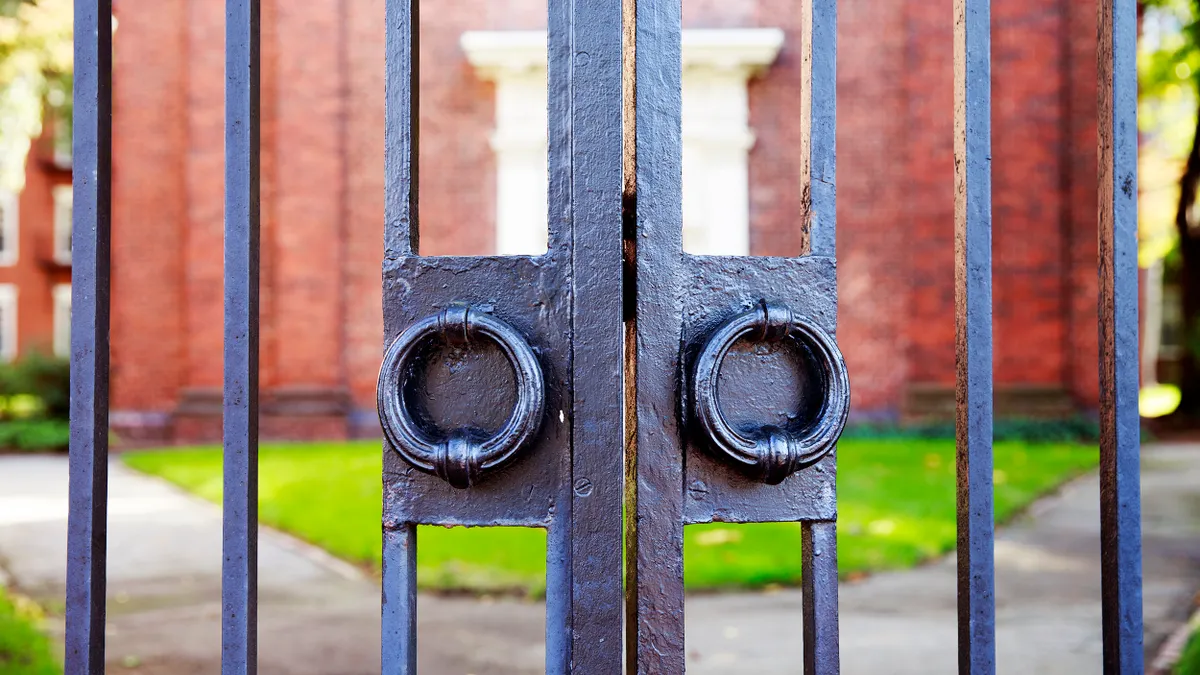Dive Brief:
- Colleges nationwide have begun talking, if speculatively, about the conditions under which they would reopen campuses for the fall 2020 term.
- Since Boston University released a plan earlier this month indicating how it may restart campus operations once it is safe to do so, many more colleges have followed.
- Their plans range widely, and several acknowledge some degree of online instruction will be needed even in the best-case scenario. Most are still tentative, however, with officials awaiting the go-ahead from public health officials.
Dive Insight:
The coronavirus drove the spring term online in a hurry. Now, colleges are looking ahead to fall and many are planning for a variety of scenarios. Those range from how to safely handle a return to campus to navigating another term entirely online.
Even if students can return to campus, the potential for an outbreak could cause schools to revive stronger social distancing measures.
Widespread testing and technology-enabled contact tracing, as well as the ability to safely isolate infected students on campus, are prerequisites for reviving campus life, wrote Brown University President Christina Paxson in an op-ed for The New York Times this weekend.
"Our students will have to understand that until a vaccine is developed, campus life will be different," she wrote.
Paxson went a step further, suggesting governments "marshal the resources and expertise to make it possible to reopen" campuses. Purdue University President Mitch Daniels said in an April 21 letter to campus that the school plans to open in August if permitted by "governmental authorities." Other executives have emphasized that they will take their cues from scientists.
Of 187 college presidents surveyed in mid-April by Inside Higher Ed, one-third said they weren't certain when the majority of in-person class meetings would resume. Just under half said they expected that most courses would start the fall semester in person. On other topics, such as when they expect to reopen residence halls and administrative offices and restart athletic programs, around one-third were still uncertain.
In light of the wide range of potential outcomes, some colleges are changing their academic calendars to lessen the impact of disruptions. Beloit College, in Wisconsin, and Centre College, in Kentucky, are dividing their term into two blocks to reduce the number of courses that may be affected by a change in public health policies. And Southern New Hampshire University said it will enroll incoming freshmen in only online classes.
Final decisions aren't expected across the board for at least a few weeks, and colleges are already facing pressure to give new students past the traditional May 1 deposit deadline to make their choice.
Just 10% of 419 parents of college students responding to a recent survey said they were comfortable with their children attending an institution in the fall term based on the measures colleges are currently taking. Around 44% said they would be comfortable with a "meaningful reduction" in price. Some 22% said they would not be comfortable with any online learning, while a similar share would require "significant improvements" in quality.









